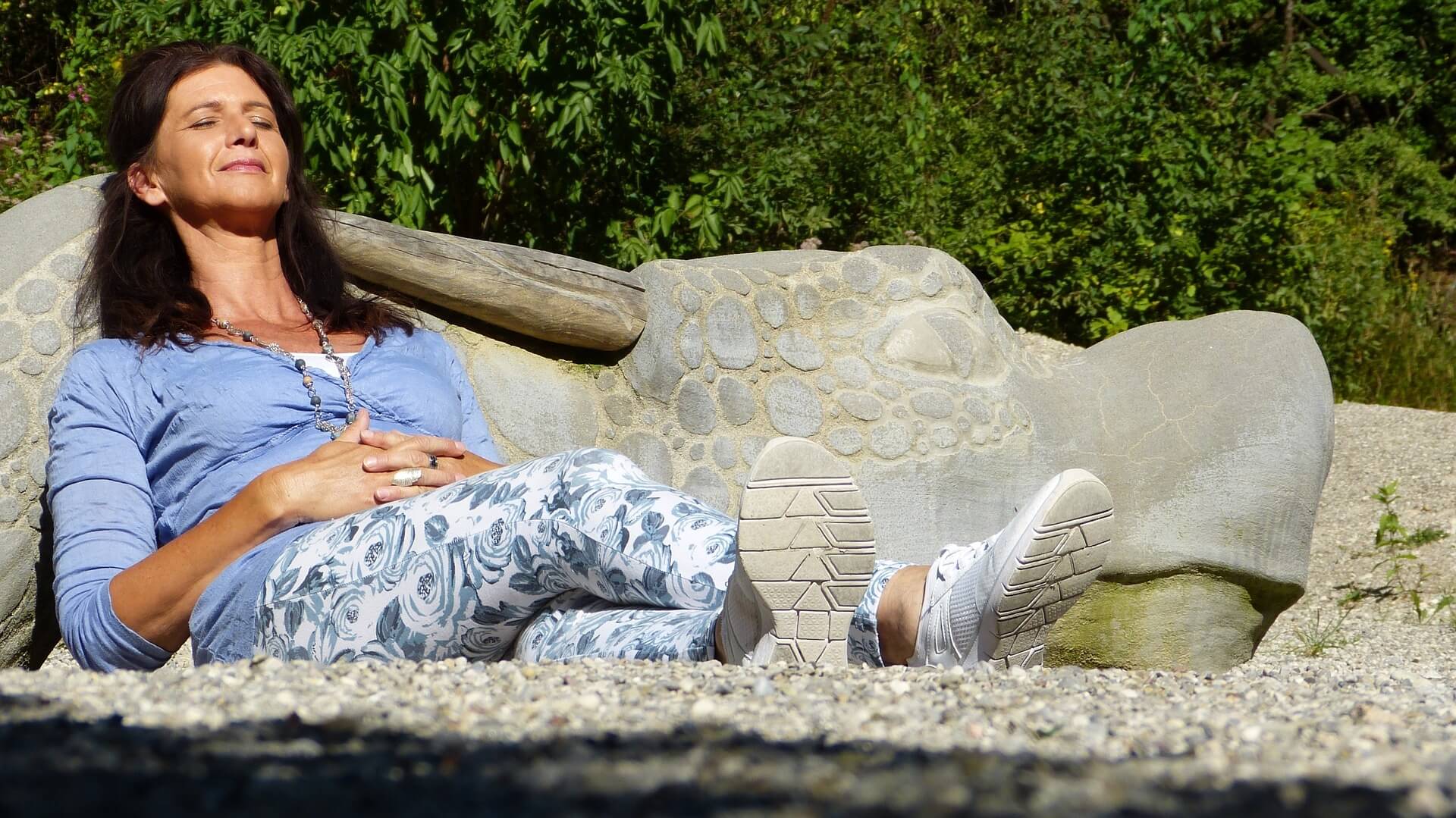The menopause is when a woman stops menstruation and is no longer able to have children. This can occur any time in a woman’s life, dependent on her Oestrogen and progesterone levels and egg reserves.
The menopause is most common between the ages of forty-five and fifty-five but can occur prematurely in some cases. The menopause is the cessation of periods and comes with a range of life-altering symptoms.
What Causes the Menopause?
Women begin to menstruate in their early teens. Menstruation is a 28-day cycle that prepares the female uterus for pregnancy. If a woman undertakes sexual intercourse and a sperm fertilises an egg, the egg is implanted in the lining of the womb and this develops into an embryo and baby.
The menstrual cycle prepares the egg and womb lining for this, and if the egg does not meet a sperm, the womb lining is shed in a process called menstruation.
How Is Menstruation Controlled?
Menstruation is controlled by several female hormones including follicle stimulating hormone (FSH), which causes the maturation of the egg in the ovary and stimulates Oestrogen production, luteinising hormone (LH), which stimulates the release of the egg, and Oestrogen, which stimulates LH and repairs and thickens the womb lining.
There is also Progesterone involved in this process, which maintains the womb lining during the menstrual cycle.
In Menopause, the body slows down and stops producing Oestrogen and Progesterone. This stops the menstrual cycle and, as Oestrogen can also affect other areas of the body including the brain, skin and bones, causes a range of both mental and physical symptoms and changes.
What Are the Signs and Symptoms of Menopause?
Most notable symptoms of the menopause include hot flushes, dry skin, vaginal dryness, reduced sex drive and mental fog and low mood and anxiety.
The mental health effects of menopause are due to the fact that Oestrogen is a mood stabiliser which regulates Serotonin, the happiness neurotransmitter or brain chemical, in the brain. There are stages of menopause from perimenopause, which is the erratic pre-menopause stage where periods become irregular and hormone levels start to decline.
This is followed by menopause, which is the stage where a woman stops producing Oestrogen altogether and has gone without a period for 12 months or more. Finally, there is post-menopause, where a woman is at risk of osteoporosis and heart disease because Oestrogen is needed to support and manage bone formation and turnover.
How Can You Manage and Treat the Symptoms of Menopause?
The first stage of treatment is to manage the symptoms. This includes treating the low mood and anxiety with anxiolytics and antidepressants, giving vaginal creams for the vaginal dryness, lubricants for intercourse and Gabapentin to relieve hot flushes.
Doctors may also prescribe HRT (hormone replacement therapy) to those in perimenopause to prolong menstruation and support bone formation. Post menopause, calcium and vitamin D supplements are advised also for bones.
Once menopause has occurred, natural pregnancy cannot occur. This can be especially difficult for those with premature menopause or amenorrhea (the absence of periods) due to obesity, anorexia, polycystic ovaries, or intensive stress (high Cortisol stress hormone steals the Oestrogen precursor molecule, reducing Oestrogen).
Those with a family history of premature menopause or perimenopausal may need fertility support. This could involve egg freezing when concerns over declining fertility.
Egg freezing is not currently offered on the NHS, unless due to specific medical treatments that cause infertility such as cancer chemotherapy. IVF is also an option in perimenopause, with hormonal support. Those over 40 with low ovarian stores are not entitled to NHS IVF, and so this will have to be done privately.
The NHS IVF entitlement depends on where you live and the criteria of individual NHS Clinical Commissioning Groups (CCG’s) and the length of its patient waiting lists. Each CCG criteria varies, based upon local budget allocations and NICE (National Institute of Clinical Excellence) guidelines. Most CCGs require a woman to be under 35, at healthy weight, not have any children already (both you and your partner) and not smoke. For women outside this criteria, private IVF (at £3000-5000 a cycle plus hormone support) is your only option to conceive.
How Can GlobMed Help?
GlobMed is aware of the symptoms that menopause causes and the effects on fertility. We support the NHS wholeheartedly but also understand its limitations and the affects this has on our clients.
We go above and beyond to ensure that we bridge the gap between public and private services, to find you the best treatment you need. We believe healthcare should be provided wherever it is done best worldwide, and when it comes to fertility, Spain is a preference in Europe.
From the high-quality options available we further apply our rigorous selection process to offer you only those facilities that offer the absolute latest infertility treatments and the utmost quality of care. We help our clients conceive if at risk of premature menopause or perimenopausal, and we help those suffering with the symptoms of menopause.
We use our knowledge and networks, to ensure that we find you the best medical professionals at an affordable price, tailored to your requirements. Our specialists research extensively to find you what you need to survive menopause or start a family. At GlobMed, we are committed to helping everyone have the best life they can have and to bring life to this world.


 71–75 Shelton Street, Covent Garden, London, WC2H 9JQ
71–75 Shelton Street, Covent Garden, London, WC2H 9JQ +44 (0) 20 3376 1032
+44 (0) 20 3376 1032



